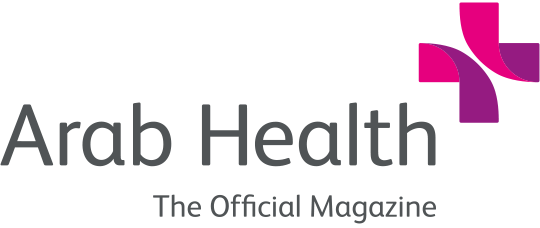The Future of the GCC Health Sector: Innovation, Sustainability, and Leadership
By Mountasser Kadrie, academic programme director for the Master of Healthcare Administration programme at Walden University’s College of Health Sciences.
Investment in the Gulf Cooperation Council (GCC) healthcare sector is booming. According to recent estimates by Al Masah Capital, healthcare spending across the Middle East and North Africa (MENA) region is expected to grow to $144 billion by 2020, with GCC nations alone contributing around 52% of the total healthcare expenditure. There are nearly 350 hospital projects currently underway in the region, and all are designed to enhance vital healthcare infrastructure and increase the availability of specialised facilities. These include the 1,500-bed King Khalid Medical City in Dammam, Saudi Arabia, which will offer state-of-the-art healthcare in seven specialty areas, and Burjeel Medical City in Abu Dhabi, United Arab Emirates, a multispecialty hospital focusing on areas such as oncology and acute and long-term care.
These investments and rapid growth are in direct response to significant opportunities and challenges created by various socio-economic and business trends. Demand for healthcare in the GCC countries has been driven by changing demographics, including a surge in population, an ageing population, a dramatic rise in income levels and a greater prevalence of lifestyle-related chronic diseases, such as Type 2 diabetes, heart disease and obesity. Although improved health services and infrastructure have contributed to a higher life expectancy—an increase from 47 years in 1960 to 73 years in 2014, according to the World Bank—this positive trend nonetheless places considerable strain on the sector’s existing and future resources and its ability to provide sustainable, efficient and effective healthcare.
Despite the robust growth of the sector, these demographic trends have resulted in the region’s healthcare systems trailing behind the international medical practice and quality standards. For example, a report from Al Masah Capital Limited reveals the GCC region has 21 hospital beds per 10,000 people, compared to the global average of 30 beds. GCC countries also lag in the numbers of qualified healthcare professionals. The GCC has 23 physicians per 10,000 people, compared to 28 in the U.K., and 31 nursing and midwifery personnel per 10,000 people, compared to 95 in the U.K.
It is critical that sustainable and well-managed investment in the GCC healthcare sector helps create a robust and integrated health system that is adequately equipped not only to deal with chronic diseases, but also to manage population risk factors by increasing the rate of early stage interventions. Central to this effort is building a culture of innovation and sustainability that seeks to promote healthy lifestyles, improve patient safety, reduce waste, and minimise healthcare costs.
A key method of achieving this is expanding the capabilities and system infrastructures of preventive and primary care providers and services. As the cost of healthcare increases, it is necessary to develop new healthcare treatment models that help detect diseases at an early stage, ease the problem at the source, and allow secondary and tertiary medical providers to operate with maximum efficiency. One solution is making use of innovative evidence-based platforms and technologies that improve accessibility to medical care, but currently investment in this area is low. For example, EY reports that the UAE currently allocates 6% of its healthcare expenditure to preventive services, averaging $90 per capita, compared to an estimated average of $400 to $500 spent in developed countries such as Germany, France, and the Netherlands.
The GCC’s current focus on healthcare investment means the region is poised to position itself as a leader in this critical field and stay at the forefront of implementing new technologies, pioneering new methods, and delivering value to practitioners and patients alike. Telehealth is one innovative platform that uses a variety of technologies and tactics to deliver virtual medical, health and education services to enable the treatment or diagnosis of a patient by a physician or nurse remotely. Studies have shown this method has reduced spending while improving patient care and satisfaction levels.
However, to guarantee success in implementing these services, it is first necessary to boost the availability of training, research and education opportunities and facilities to ensure there is a stable supply of qualified and highly trained local workers to meet the growing demand for healthcare services. More than physicians and nurses, specialists across the entire healthcare spectrum are also required, including health administration, health economics, health regulations, and health informatics.
Although the GCC is known to attract and depend on expatriates to live and work in the region, online education offers a unique opportunity to build a dependable and professional workforce from its nationals while still benefiting from the perspectives and best practices of those outside the region. Students in the Master of Healthcare Administration (MHA) program at Walden University learn with and from peers and faculty from around the world in the online global classroom. The online course-based and competency-based MHA program provides students with the core skills required to directly respond to the needs of their communities while optimising organisational performance and outcomes, including coordinating relevant expertise, disseminating healthcare advice, and communicating the training and education opportunities available in the sector. Central to this is not only the ability to think strategically about the direction healthcare will take but also the ability to educate and guide the ever-expanding workforce, ensuring consistency of service throughout this growth.
Education and innovation are key contributors to a successful overhaul of the healthcare sector in the GCC region. If more people across the GCC have access to quality education and the drive to positively impact their community, the region will be able to take significant steps toward creating a healthy national culture and a sustainable and world-leading healthcare model that can adapt to the ever-changing needs of its population.


